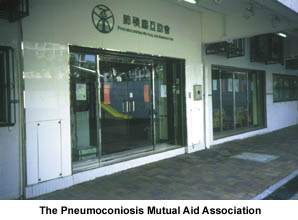Social Issues |
Home | Archives | About | Media Links

October 1999
NGOs Suffer from Public Policy
By Michele Tang
See also:
Economy Update - NGOs Bear Brunt of
Economic Downturn
Another
article from this beat:
Matching Services - Shooting Arrows on
Cupid's Behalf
NGOs that provide social welfare services recognized by the government are fully subsidized except for administrative expenditures.
However, NGOs that provide non-recognized social welfare services need to rely on public donations and other charity funds.
It is a common but mistaken conception that it is easier for larger NGOs to raise funds than small ones.
Large NGOs and small NGOs have equal opportunities to raise funds, according to Dr. Au Chor Fai, assistant professor of the Department of Social Work at The Chinese University of Hong Kong.
"In fact, small NGOs have an advantage over larger NGOs. Small NGOs have much less administration expenditures which must covered by other funds," he said.
Apart from insufficient subsidies, Dr. Au said a value-added policy by the government made NGOs suffer.
"In the next 3 years, subsidies to recognized NGOs will be cut by 5 percent. But at the same time, the NGOs are required to provide more services."
With the recent economic downturn, public donations have declined dramatically, so NGOs want to rely more on the government. However, the new policy means that it is more and more difficult for the NGOs to ask for funds.
"It is quite demanding for the NGOs," said Dr. Au.
He thought that the government did not consider the NGOs' situation before developing the new policy.
Regarding the backward development of some small NGOs owing to insufficient subsidies, Dr. Au said, "NGOs would have a difficult time asking for subsidies. However, this does not necessarily mean that they would give up their services to the public."
Added he: "If NGOs' services are worth providing and are properly promoted, there is help from all around."
Home | Archives | About | Media Links